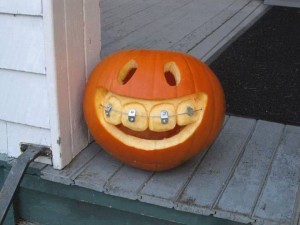What Better Time to Get Braces While Everyone is Wearing Masks Again!
Unfortunately, this time of year, we are seeing spikes of COVID-19 all over the country. This is extremely disheartening, and after almost 2-years, we are all tired of dealing with it. Now that we are having to “mask up” again, wearing a mask does make it easier to keep your braces more hidden, until […]
Can Pacifiers and Thumb Sucking Cause Orthodontic Damage?

The act of sucking is natural for all babies, most even begin in the womb. After all, it is the motion that will sustain their lives for many months to come. It is comforting, soothing and teaches them to accept nourishment. Many parents chose to provide pacifiers as a calming tool as well. Most babies […]
A Perfect Smile for the New Year!

Happy New Year From All of us at A Perfect Smile! What will you resolve to do in 2021? Usually, resolutions include things like eating less or getting in shape, but this year, why not try something different? If you’ve ever wanted a beautiful and healthy smile, there’s no time like the present! As parents, […]
Caring For Your Braces During The Holidays

The holidays are upon us again, which for most of us means family, fun, and food. It is the time of the year we look forward to most, especially after the year we’ve just been through. Even if you are celebrating on a lower scale, it is important to remember to take extra care with […]
What Better Time to get Braces Than While Everyone is Wearing Masks!

Traditional metal braces have come a long way. Several years ago, large metal brackets which were very obvious were placed on teeth, which sparked the nickname, “Metal Mouth” for lots of kids. These days, brackets are much smaller and a lot less noticeable. Lots of our kids are even excited to get them since […]
Spring Break Special!

School’s out! The days are getting longer which means more time for outdoor activities or to just take a break and be lazy! With the kids out of school, Spring Break is also an excellent time for a free consultation for braces. To celebrate, we are offering extra low down payments on braces for anyone […]
Summer is a Great Time for Kids to Get Braces!

Summer is officially in full swing! School is out and days are longer and which means more time for outdoor activities such as swimming, playing, or just being lazy. There are also fewer commitments such as after school activities like sporting events. Because of this, summer is an opportune time to have your child evaluated […]
How to Enjoy Halloween Despite Braces

Trick-or-treat! In the spirit of this sweet and spooky holiday, Dr. David Taylor and his team at A Perfect Smile Orthodontics, have some sweet tips for you on your Holiday treats. Here’s the lowdown — the Good, the Bad and the Ugly lowdown. While our highest recommendation would be no sugar at all, we realize […]

